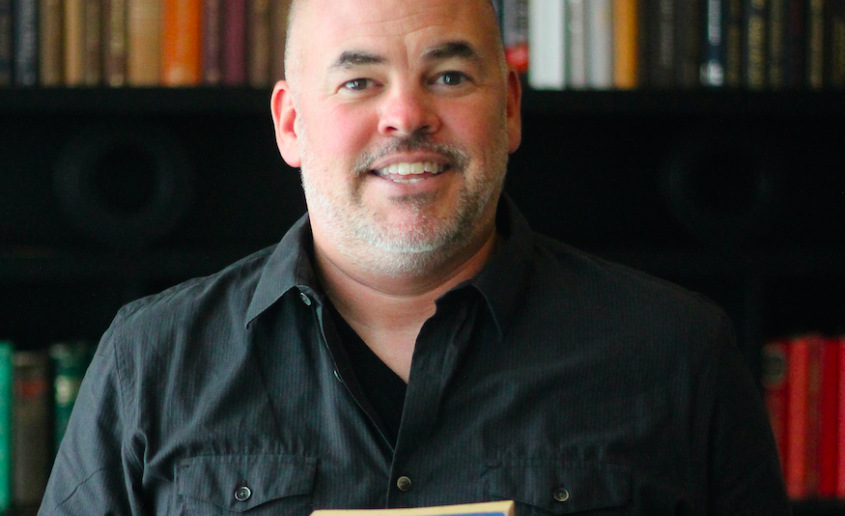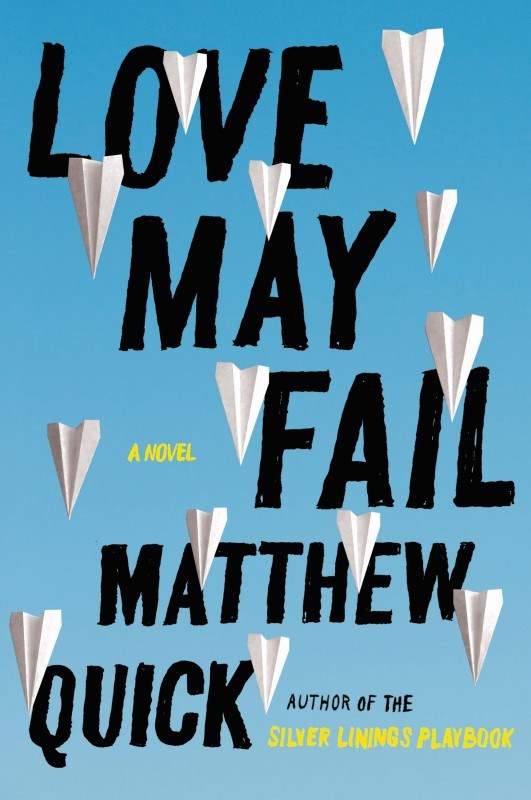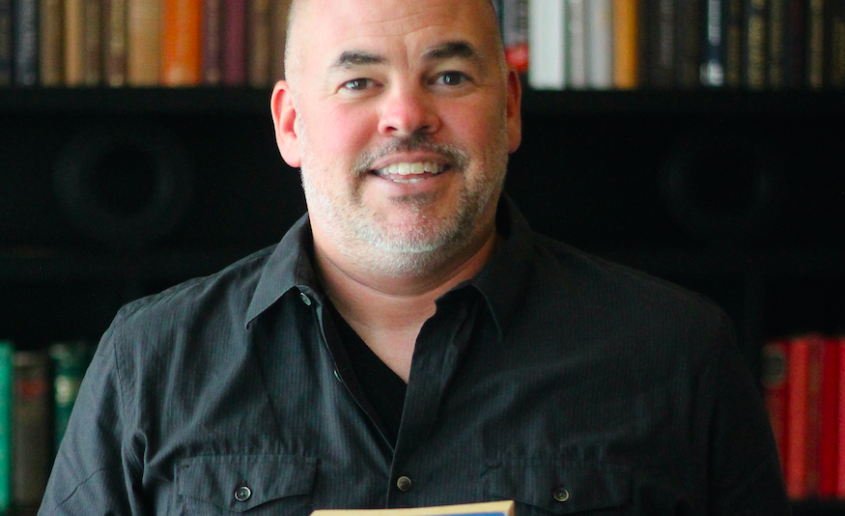“I wasn’t always a writer,” Matthew Quick, 41, tells me not even five minutes into our conversation at the Writer’s Bar at Raffles Makati — a pretty bold, if conflicting, statement from someone who has effectively put his mark on the face of contemporary fiction via complex books delving into the intricacies of the human psyche.
“I meant professionally,” he clarifies, explaining that delving into fiction has always been his dream even as a teenager growing up in Oaklyn, New Jersey, which he describes as a blue-collar neighborhood. “I knew I wanted to be a writer when I was in high school. Right when I was around fifteen I started to fill up entire notebooks. I was writing short stories, a novel and a play, but in the neighborhood where I grew up, that was not a cool thing to do,” he explains.
“When I turned eighteen I was told that I’d never make a living as a fiction writer and that it wasn’t something that a kid from my neighborhood would be able to do, and so I became a teacher instead because I thought, ‘Well, if I can’t write books then I’d like to be around books.’” And for a while, it seemed, that plan worked. But not for long.

Despite enjoying relative comfort and success as a literature teacher for seven years, Quick eventually broke down. “Teaching literature was great for around seven years but right around my thirtieth birthday, I started to realize that if I didn’t pursue what I felt was a calling, then my life was going to be over” he says.
Describing himself as already being freaked-out by the prospect of what he should do with his life at that time, Quick says he sought help from his wife, novelist Alicia Bessette. “I had a little bit of a breakdown and I kind of completely freaked out and I had a long talk with my wife and I told her that this (writing) was what I wanted to do and she said, ‘Well if you want to do it then you should do it now,’ and so I did.”

Leaving a tenured, not to mention lucrative, teaching position behind, Quick went on to write three novels (all terrible, he admits) within two years, without any success. That is, until that fateful moment when he started typing what would eventually form the makings of his debut novel, The Silver Linings Playbook.
“It was terrifying,” he says, describing his decision — a leap of faith in more ways than one — to become a full-on fiction writer, adding that there weren’t many people who understood and agreed with his career shift.
“Pretty much everyone in my life thought I lost it and that I was doing something foolish,” Quick says — a statement which, at first, seemed to ring true. After all, wasn’t he supposed to be a teacher who knows the importance of logic and rationality?
“But to make art is not a rational thing,” Quick contests, adding, “I did it, not because there was going to be a guaranteed, Oscar-winning movie at the end of the rainbow, but because I just really wanted to write.”
And write he did.
When The Silver Linings Playbook first came out in 2008, it was a game-changer: not only were its two central characters, Pat Peoples and Tiffany Maxwell beautifully complex and well fleshed-out characters, they were also realistic portrayals of people struggling with mental illness. So realistic, in fact, that Quick says fans, family members and friends would come up to him, asking him how he did it.
“I didn’t set out to be the ‘mental health guy,’” Quick tells me at the hotel bar, noting that he was only writing characters who, to him at least, were interesting. He admits however that it was only when he was in the middle of writing Silver Linings that he started to realize issues about himself — issues that somehow managed to seep into the book, something which he says was more along the lines of a happy accident than a conscious decision on his part.
“As I started to go along writing the book, I also started to psycho-analyze myself, and realized that in my twenties, I was dealing with a lot of issues myself. I was dealing with depression and anxiety and these were things that I never talked about because where I grew up, we didn’t talk about these things,” he says with his trademark candor.
And it was nothing short of liberating for Quick. Writing about people who were struggling with mental health issues became his way of personally “coming out” about his emotions. It afforded him the chance to liberate himself from his own feelings of depression by allowing himself to talk about it with everybody.
But for all his similarities to the lead character in Silver Linings, Quick has this to say, lest people get the wrong idea: he’s not Pat Peoples. “All the characters are fictional”, Quick says, adding that although he draws on personal experiences when writing his stories, the characters that populate his books aren’t based on real-life people. “I would say the books are full of me but they’re not about me. It might sound like a contradiction but I think that’s what fiction is: you put all of who you are into the blender of fiction and it gets blended up and then becomes something else,” he explains.
A headliner for this year’s Philippine Literary Festival alongside fellow author Meg Wolitzer, Quick has advice for young, emerging writers who have yet to start writing their first stories: live. “You’ve got to live a little before you write,” Quick says and further notes that a writer needs to live life before he can have something to say, which in turn helps build one’s authenticity on the page. “Don’t try to imitate someone else and don’t try to fit into some kind of herd,” he adds.
And it seems like sound advice. After all, Quick seems to be at the top of his game at the moment, with his third adult book, Love May Fail, already in stock at bookstores the world over.
Critics may say Quick’s meteoric rise to fame (his books have all been optioned for film, following Silver Lining‘s stellar box-office performance) just boils down to good and smart marketing. Having spoken with Quick himself, I feel like it isn’t. He’s just pretty damn good when it comes to words.
Admiration is hard to earn, but it’s inevitable when you see someone take the lemons life has thrown at him to make some pretty stellar lemonade.


0 comments on “Matthew Quick sees the silverlining”